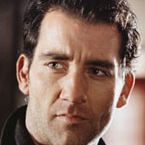RFalvo69
Posts: 1380
Joined: 7/11/2013
From: Lamezia Terme (Italy)
Status: offline

|
quote:
ORIGINAL: Canoerebel
This is not unprecedented.
In fact, historically speaking, it will almost surely be minimal compared to the great pandemics of the past.
Once again, this is a skewed view of the situation.
The great pandemics of the past, up to the Spanish Flu of 1918 happened in very different Worlds. Let's take two examples:
In the 1300s, when the Black Plague hit, the average guy most probably knew how to gather food, drinkable water, build a shelter and try to ride it out. He couldn't fight the disease, because the methods of transmission were unknown (and still the idea of "social distance" already existed). However, he most probably had all the skills needed to be alone and self-sufficient: hunting, gathering etc.
When the plague went away, four years later, 30%-50% of Europe was dead. The survivors sighed, resumed their lives and moved on.
In 1918 the World wasn't as globalised as it is now: the interdependence between countries was not as strong as it is today. And one could argue that the mere diplomatic interdependence of the European states in 1914 was among the primary causes of WWI.
In 1984 the BBC broadcast a TV movie called "Threads". It was a realistic view at a potential "limited" nuclear war and it came out in Europe before "The Day After". Today it is available for free on Youtube.
The key word, here, is the title: "Threads". It refers to the complex interconnections of the modern World, a World where we hyper specialise in some skills and personal infrastructure but are dependent to a myriad of other people for the skills and general infrastructure we lack. I can repair a faucet, not my area's hydraulic infrastructure.
And what happens when a major event (a nuclear war in the movie, a pandemic now in the real World) breaks these interconnections?
Do you know how to milk a cow? How to hunt? How to prepare edible meat starting from a dead animal? How to evaluate if the mead is edible in the first place? How to find fresh water and evaluate if it is drinkable?
True, there are people with these skills - but not many in the "developed World". Not in 1984 and not today. If only a few strands in the interconnected World break, everything stops - which is what we are seeing. Can I survive if my country is miraculously OK but I was working for France and France is shut down? Can the aviation industry survive if a big chunk of their passengers to Paris doesn't fly anymore? And so on.
Another example in a different field? In 2007-2008 some people in the States defaulted in their mortgage payments ---> The result was the biggest and hardest economic crisis modern Greece ever saw. Can you see the connection? The intricate web that brought the poison of a "local" crisis across the globe? Yeah, me neither (at the time, now I read some books).
It is not what is happening that is unprecedented, it is the World were the pandemic is happening that is, historically, in an unprecedented state. A very, very fragile one - or thus we are discovering.
And this is what makes the current event "unprecedented".
< Message edited by RFalvo69 -- 4/17/2020 4:01:08 PM >
_____________________________
"Yes darling, I served in the Navy for eight years. I was a cook..."
"Oh dad... so you were a God-damned cook?"
(My 10 years old daughter after watching "The Hunt for Red October")
|
 Printable Version
Printable Version





















 .
.  New Messages
New Messages No New Messages
No New Messages Hot Topic w/ New Messages
Hot Topic w/ New Messages Hot Topic w/o New Messages
Hot Topic w/o New Messages Locked w/ New Messages
Locked w/ New Messages Locked w/o New Messages
Locked w/o New Messages Post New Thread
Post New Thread